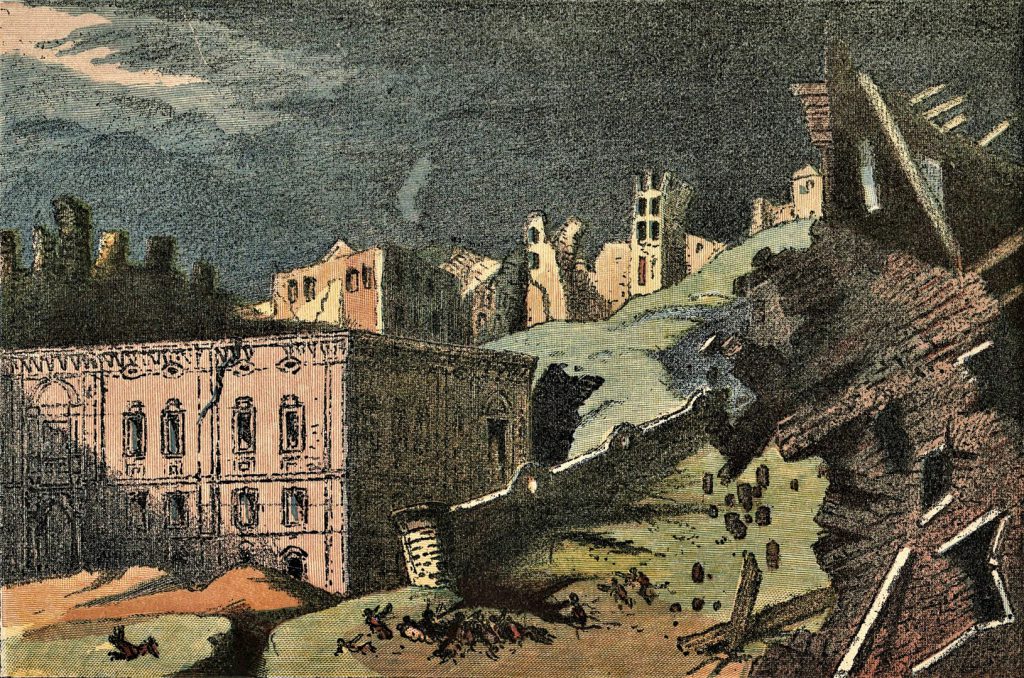
Published April 30, 2020
The great Lisbon earthquake on Nov. 1, 1755, All Saint’s Day, killed perhaps 50,000. No one is certain of the death toll. The tsunami that followed the quake killed still more, and so did the fire that started when the heaving earth capsized votive candles. Most important, these events altered the Western mind.
The earthquake, which would have registered between 8 and 9 on the Richter scale, reverberated in the world of ideas, in language and metaphor. The ground people stood on—the ground of religious and philosophical belief—became treacherous, latent with danger, unbelief, apocalypse. It was only 34 years between the Lisbon earthquake and the French Revolution.
We know that the coronavirus pandemic will alter the way that the world of the 21st century thinks and behaves. We don’t yet know the details. They will evolve.
Forty-five years before Lisbon, the German philosopher Gottfried Leibniz invented the term “theodicy,” which means “vindication of God.” Theodicy asked: How can evil exist if God is all-good and all-powerful? It was, and remains, the core dilemma of faith, the fierce Christian version of a Zen koan. After Lisbon, answers became dazed or mordant and impious. Voltaire wrote “Candide,” mocking the Leibniz idea of the “best of all possible worlds.” The evils grew more elaborate over the centuries as technology improved—the Somme, the Holocaust. The world improved in science, medicine, knowledge, convenience. But so did the efficiency of its wickedness.
Click here to read the rest of this piece at the Wall Street Journal’s website.
Mr. Morrow is a senior fellow at the Ethics and Public Policy Center.




